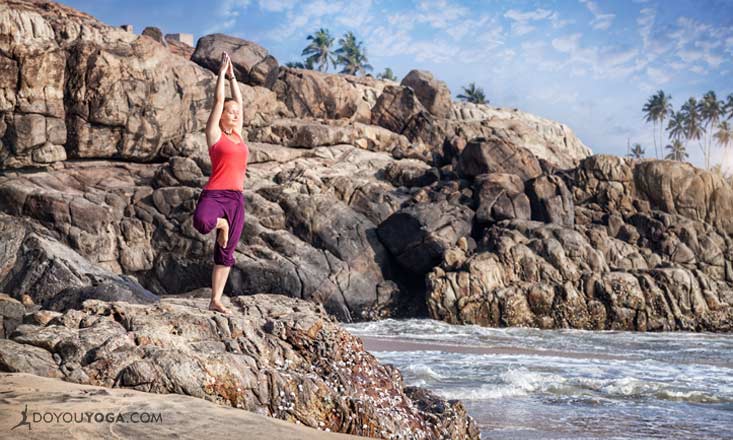Learning to be still is the hardest thing. Years ago, all I knew was stillness. The first 25 of my formative years played out in a single city in the Southeast of England.
I’d always had that itch that seems to have plagued an entire generation. Born from baby boomers, all I’d ever wanted was to see the world for myself. Pages of travel magazines would coax me out of delicious dreams of warm sand and wind in my hair.
I’d find myself awake at 3 A.M., poring over the itineraries, imagining I was there.
So many of us seem to suffer with travel bug symptoms ranging from moderate to severe.
What is responsible for breeding an entire generation of global gypsies? Maybe it’s that we live in a time where life has evolved so fast that it is far beyond our parents’ and grandparents’ sphere of reference. Their answers to our curious questions weren’t always satisfactory.
As a result, we felt compelled to discover the world for ourselves, redefining what it meant to be alive.
You have brains in your head. You have feet in your shoes. You can steer yourself any direction you choose. You're on your own. And you know what you know. And YOU are the one who'll decide where to go. ~Dr. Seuss
I realised early on that I wasn’t cast for a conventional life. So I began to move, desperate to avoid the trappings of 21st century living without exploring my options locally. The trouble is, once you start moving, it’s very difficult to stop.
Moving becomes addictive.
You forget how to exist in the real world. Instead, you become nomadic. A cultural chameleon. You co-exist with others travellers and dreamers, bound together by your need to be free and to figure out what this life is all about.
You forget what normal looks like. Monday to Friday…9 to 5…The concept of weekends fade. It’s not that you don’t work, it just that you fit work around your life rather than the other way around.
You find your passion, discover your purpose, begin caring less about productivity and making money. You embrace a completely different way of life, experiencing things you could have never expected. You learn to let go and flow.
Life turns into a grand adventure, governed by the beat of your own drum. You chose all this in exchange for stability.
In the past seven years, I’ve moved 17 times within 10 different countries. I’ve learnt life is all about stop and go. We are on a merry-go-round of departures and arrivals, always. Change is the only thing that is certain.
But, there comes a point when we have to slow down.
Even stop. Otherwise, how can you integrate the lessons you’ve learnt and review who you are and what you need, after all that you’ve witnessed?
Pico Iyer, traveller and author of The Art of Stillness said, “I found that the best way that I could develop more attentive and more appreciative eyes was, oddly, by going nowhere, just by sitting still.”
“It was also the only way that I could find to sift through the slideshow of my experience and make sense of the future and the past.”
In the end, the global soul searching leads you to a place deep within yourself untouchable by anything external. The questions you once had change and become fewer. Answers don’t seem so important anymore, because you know there will always be more than one.
After all that, how do you shoehorn yourself back into regular everyday living? Here’s how to soften the reintegration blow after you’ve popped the travel mould.
1. Be grateful.
Recognise how blessed you are to have explored the world for yourself, and express gratitude for the opportunities, places, and people that have enriched your journey.
2. Grieve.
Coming home can be tinged with sadness, but don’t be afraid to give yourself time to grieve and adjust.
3. Keep your memories close.
Put pictures up and place collected trinkets in your new space, helping remind you of who you are now.
4. Let it go.
Accept your travels as something you did that is now part of the very fabric that is you. The experiences you had are woven into your soul—there’s no need to cling or pine for them.
5. Stay in touch with your soul siblings.
Relationships formed on the road run deep. Shared experiences and open-spiritedness make the connections you keep profound. So stay in touch. If you’re feeling stuck, misunderstood, or isolated, your soul siblings will pick you up.
6. Remember the feeling of freedom.
That sense of freedom you felt isn’t tied to one place; this freedom is within yourself and can be found closer to home if you only look.
7. Override your instinct to run.
You’re pre-programmed for escape. When contentment or challenge threaten, you immediately prepare to bolt. But give it time. Give yourself a period of adjustment before you judge your new life and move elsewhere.
8. Look for adventure closer to home.
Cultivate your sense of curiosity and adopt the same attitude of adventure closer to home.
9. Don’t expect to feel the same adrenaline.
Travelling often means living outside your comfort zone, beyond the context of your own conditioning, and not always knowing where you’ll be sleeping at night. It puts us in a constant state of fight-or-flight, which too can grow unhealthy in excess.
Let yourself get used to not always being on red alert. It will feel disconcerting at first.
There may be little that excites you more than the idea of booking a flight someplace, but there’s also something to be said for simple pleasures and the joy of having old friends and loved ones around you.
While you ease into reintergration, find comfort in knowing that there are little pieces of your soul scattered all around the globe.


